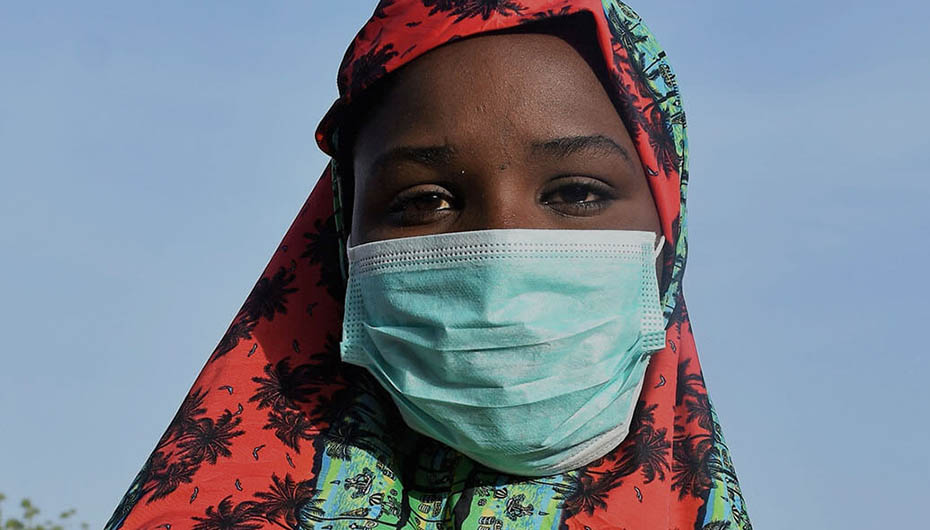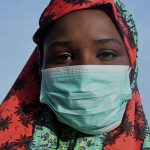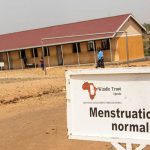Media Centre - Media release - 20 May 2020
Plan International Australia: Girls in Somalia subjected to door-to-door Female Genital Mutilation, as schools stay shut due to COVID-19

(MOGADISHU / MELBOURNE): Girls in Somalia, forced to stay at home due to COVID-19, are now undergoing Female Genital Mutilation (FGM) in their homes, warns Plan International Australia, the charity for girls’ equality.
“The lockdown is being seen as an opportune time for the procedure to be carried out in the home with ample time for healing,” said Sadia Allin, Plan International’s Head of Mission in Somalia.
“The economic turndown is also motivating the cutters to resort to harmful livelihood options, and they are knocking door-to-door to cut girls.”
FGM affects around 200 million girls and women globally. It involves the partial or total removal of the external genitalia and in Somalia the vaginal opening is also often sewn up – a practice called infibulation.
According to UNICEF, Somalia has the highest cases of FGM in the world – with 98% of girls undergoing it between the ages of 5 and 11 – and COVID-19 prevention measures are seemingly perpetuating the continuation of the practice. FGM is still legal in the country.
Plan International, working with local partner, NAFIS (Somali and National Network Against FGM/C) are already experiencing increased calls on FGM incidents across Somalia, a practice traditionally carried out during school holidays in urban settings or during the rainy season in rural areas. Healthcare workers across the country have reported a spike in requests from parents wanting them to carry out FGM on their daughters while they were home from school due to the COVID-19 lockdown.
“One of the cases we have recorded is of two sisters aged eight and nine who were cut last week and who are still trying to come to terms with what happened to them. Their mother, like many parents, views cutting as an essential part of a girls’ cultural and gender identity, a precondition for marriage and most importantly a religious rite of passage,” said Ms Allin.
She added that Plan International staff were receiving reports from the public that FGM practitioners were knocking on families’ doors to offer their services. “They knocked on my door too,” Ms Allin said. “I have two daughters of my own, aged five and nine, and was horrified but sadly not surprised.”
The COVID-19 pandemic is having a deep impact on the environment in which girls and all children grow and develop, increasing immediate protection risks and undermining their longer-term health, wellbeing and resilience. Girls and young women living in fragile and conflict-affected settings face even greater risks, as increased stress from the health and economic impacts are exacerbated and weak protection structures face further erosion.
According to the United Nations Population Fund, COVID-19 could have far reaching impacts on the effort to end FGM, with a potential two million FGM cases occurring by 2030 that could have otherwise been averted.
FGM has lifelong consequences for girls and their rights to make decisions about their sexual and reproductive health. This practice has no health benefits and harms girls and women in many ways.
“I am extremely alarmed by these reports coming in from our Somalia office. During a crisis, we know that it is often women and girls who are impacted the most from both the immediate and the flow-on effects, and this is sadly what we are witnessing with this sharp rise in FGM cases – a painful and disfiguring procedure which needs to be eliminated,” said Plan International Australia CEO Susanne Legena.
“As a mother myself, I can’t bear to think of any child experiencing this traumatic practice at such a young age. Girls are usually powerless to refuse the procedure, and many don’t even know what it is before it is performed on them.”
“If girls or women are isolated at home, they’re more at risk of gender-based violence, including harmful practices such as female genital mutilation. COVID-19 is likely to undermine efforts to end gender-based violence through a double whammy of reducing prevention and protection efforts, social services, care and legal services, and at the same time increasing the rates of practice of FGM,” she added.
“We are working on the ground in countries such as Somalia to engage and empower families, communities and traditional and religious leaders to change attitudes and norms around this harmful practice. FGM violates a girl’s most basic human right to protection and control over her own body.”
Plan International Australia is demanding that protection and sexual and reproductive health must remain central to COVID-19 response.
The organisation is calling for sexual and reproductive health information and services, and services preventing and responding to gender-based violence and harmful practices – including FGM – to be deemed as essential. It is also calling for these services should be prioritised and adapted to ensure continued accessibility during the pandemic.
Plan International Australia is responding to COVID-19 pandemic in more than 50 countries, including Somalia, with a focus on protecting vulnerable children and communities from the impacts of the pandemic.
Campaigners also fear a spike in FGM incidents in Australia due to pandemic:
Although primarily concentrated in Africa and the Middle East, FGM is a universal problem and is also practiced in some countries in Asia and Latin America. The practice continues to persist amongst some communities living in Western Europe, North America, Australia and New Zealand.
According to research released by the Desert Flower Centre Australia, more than 200,000 Australian women and girls have, or are at risk of, FGM, and 11 girls a day are born to this group of survivors, despite the fact FGM is a crime in every state and territory in Australia.
COVID-19 will present additional challenges to combatting FGM in Australia, too, says anti-FGM campaigner and Plan International Australia supporter Khadija Gbla, adding that there was a lack of awareness of the harmful practice and its serious affects on women’s and girls’ health amongst Australian doctors and health practitioners. “I’m very worried about what we are hearing from countries like Somalia, where parents and practitioners are now rushing to get FGM done on their girls due to isolation, and how this could also play out here in Australia. COVID-19 has created a perfect platform for FGM to thrive.”
“In Australia, it has been schools, teachers, childcare workers, and counsellors who have been at the forefront helping to protect these little girls. Because of COVID-19 they don’t have access to them right now and that’s really dangerous,” she said.
Researchers had expected the scaling up of FGM prevention programmes over the next 10 years would mean 5.3 million fewer girls being cut. “But now there are cuts to this funding, which means this number could be reduced by a third. It’s devastating,” she said.
Key facts on FGM:
- Female genital mutilation, also known as female circumcision, excision or genital cutting, comprises all procedures that involve partial or total removal of the external female genitalia, or other injuries to the genital organs for non-medical reasons, mostly carried out between infancy and age 15.
- According to the WHO, more than 3 million girls are estimated to be at risk for FGM annually. More than 200 million girls and women alive today have been cut in 30 countries in Africa, the Middle East and Asia where FGM/C is concentrated.
- The procedure has no health benefits for girls and women. Because it is usually performed without permission and often against will, it violates girls’ right to make important decisions about their sexual and reproductive health.
- Gender inequality and discriminatory social, cultural and religious norms are factors in why this harmful practice takes place. These include the idea that it preserves chastity, cleanliness, family honour and saves a girl for marriage. These beliefs stem from a perceived need to control female sexuality.
- Short-term health risks of FGM include severe pain, excessive bleeding, infections and psychological consequences. Long-term health risks include pain, infections, menstrual problems, and pregnancy and childbirth problems such as difficult or prolonged labour, post-partum haemorrhage, fistula, as well as death of both mother and baby.
- Although there is an overall decline in the prevalence of FGM, the number of girls undergoing the practice is increasing due to population growth. If current trends continue, 68 million adolescent girls between ages 15 and 19 will be subjected to FGM between 2015 and 2030.
- Overall, in countries where data is available (all countries in sub-Saharan Africa where FGM is traditionally practiced) an average of 67% of girls and women aged 15-49 think the practice of FGM should end, and 63% of boys and men think it should end the practice.
About Plan International Australia
Put simply, we’re the charity for girls’ equality. We tackle the root causes of poverty, support communities through crisis, campaign for gender equality, and help governments do what’s right for children and particularly for girls. We believe a better world is possible. An equal world; a world where all children can live happy and healthy lives, and where girls can take their rightful place as equals.
With more than 80 years of experience, Plan International is expertly placed to respond to the COVID-19 crisis and its secondary impacts such. We are drawing on our experience of responding in medical emergencies such as the 2014 Ebola outbreak in West Africa. We are working to support and protect the most vulnerable children around the world, including girls who are at risk of increased rights violations, and to end the practice of FGM. You can help us, too. Donate now.
Media contacts


